Effective coaching can bridge the gap and dismantle the silos of isolation
by Kristi Meeuwse and Diane Mason
Instructional Coaching
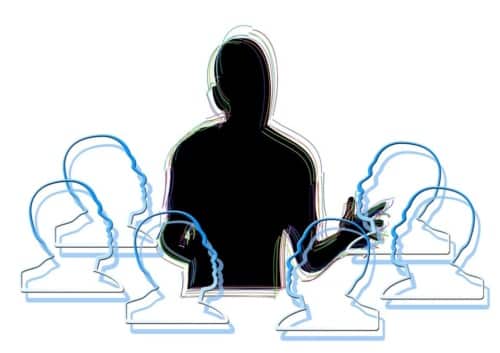 The instructional coach, an expert educator and change agent, works directly with individual and small groups of teachers to improve teacher effectiveness by observing classroom instruction, teaching and modeling ways to successfully use research-based practices and techniques to transform classroom practice. Instructional coaches implement personalized professional development strategies to build teacher capacity, improve student engagement, and increase student achievement. Also, coaches support teachers and incorporate professional reflection techniques enabling instructors to carefully examine classroom practices and personal effectiveness.
The instructional coach, an expert educator and change agent, works directly with individual and small groups of teachers to improve teacher effectiveness by observing classroom instruction, teaching and modeling ways to successfully use research-based practices and techniques to transform classroom practice. Instructional coaches implement personalized professional development strategies to build teacher capacity, improve student engagement, and increase student achievement. Also, coaches support teachers and incorporate professional reflection techniques enabling instructors to carefully examine classroom practices and personal effectiveness.
Research has shown when schools and districts implement an effective, meaningful coaching and reflection model, teacher self-efficacy increases. Improving the self-efficacy of teachers builds confidence and a sense of willingness to apply current and emerging pedagogical strategies.Additionally, when self-reflection and an analysis of instructional approaches are conducted in a collaborative environment with an effective coach, new age learning
Additionally, when self-reflection and an analysis of instructional approaches are conducted in a collaborative environment with an effective coach, new age learning materials and technology tools are more likely to be implemented with fidelity and targeted toward improving student engagement for increased performance. Working together to affect change has a greater chance of meeting goals established by the school and district. Thus, the instructional coach, with administrative support, serves a key role in creating a culture conducive to ongoing learning and changing practice.
Effective Coaching
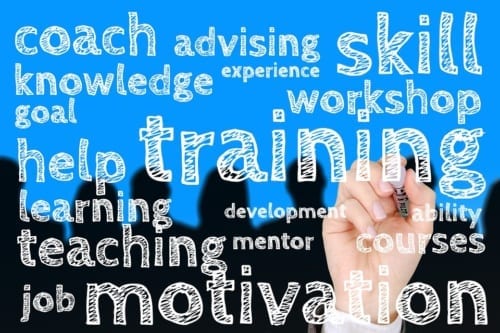 Many teachers feel more judged than supported in their instructional context. To combat this feeling of inadequacy, an effective instructional coach must be a skilled listener, observer, supporter and teacher who understands the nuances associated with specific grade level needs. Through keen observations and carefully listening to teachers, coaches gain insight into classroom practices and help reveal planning and instructional gaps.
Many teachers feel more judged than supported in their instructional context. To combat this feeling of inadequacy, an effective instructional coach must be a skilled listener, observer, supporter and teacher who understands the nuances associated with specific grade level needs. Through keen observations and carefully listening to teachers, coaches gain insight into classroom practices and help reveal planning and instructional gaps.
Coaches must actively cultivate a transparent and open climate by building relationships, using softer tones, and providing positive feedback along with suggestions for alternative instructional approaches. Follow-up meetings with teachers are critical to successfully creating a trusting relationship, because teachers appreciate and expect responsive dialogue and feedback.
Also, coaches must possess an in-depth knowledge of content and pedagogical strategies. To maintain expertise in the field, coaches often participate in collaborative professional learning activities through professional learning communities (PLCs) or professional learning networks (PLNs) to stay abreast of new and emerging instructional strategies. Many times, coaches engage in long-term personalized professional learning experiences to enhance their own skillset so they in turn can better assist classroom teachers.
Leadership Support
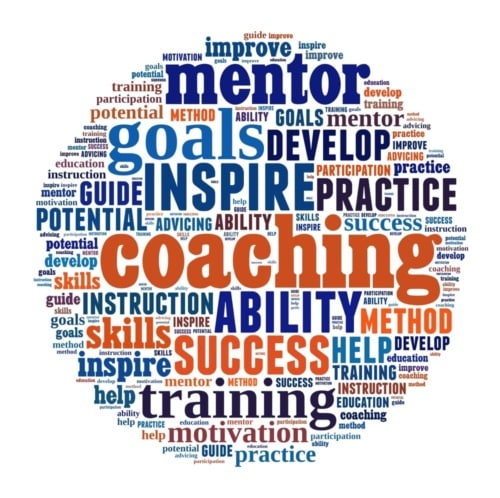 Using data and feedback, district and campus leaders establish vision and direction for overall school improvement. Anyone leading school improvement initiatives, such as instructional coaches, are generally guided by the system and campus leaders. Thus, leaders usually establish the instructional coach’s role and work scope to maintain clarity and understanding of expectations, while nurturing a collaborative culture for changing practice. Frequently, the campus leader, coach, and teachers communicate about student needs related to academic improvement.
Using data and feedback, district and campus leaders establish vision and direction for overall school improvement. Anyone leading school improvement initiatives, such as instructional coaches, are generally guided by the system and campus leaders. Thus, leaders usually establish the instructional coach’s role and work scope to maintain clarity and understanding of expectations, while nurturing a collaborative culture for changing practice. Frequently, the campus leader, coach, and teachers communicate about student needs related to academic improvement.
Coaches should regularly dialogue and plan with school leadership to jointly create a data-informed vision for building teacher capacity and changing practice. Through a deliberate communication process, coaches use school and district data to link directly to daily instruction in a collaborative way to identify, analyze and implement best practices to meet the needs of students. For an instructional coach to best meet the needs of teachers and students, leadership support for the coaching process is a critical element to success.
Reflective Action
 Reflection about teaching strategies and techniques enables deeper thinking about professional practice. For example, a coach might teach a model lesson while the teacher observes the process. Then, the teacher implements the lesson while the coach observes the teacher’s instruction.
Reflection about teaching strategies and techniques enables deeper thinking about professional practice. For example, a coach might teach a model lesson while the teacher observes the process. Then, the teacher implements the lesson while the coach observes the teacher’s instruction.
As a follow-up to the lesson implementation, the instructional coach dialogues with the teacher to think deeply about the lesson effectiveness and ways to change practice for greater student learning and engagement with content. Through this iterative process, coaches and teachers work collaboratively to improve instructional delivery and explore emerging strategies to affect change in student outcomes.
It is through this dialogue with a coach and colleagues, paired with personal self-reflection, that teachers begin to develop self-efficacy and gain a personal sense of gaps in instructional skills. Improving individual skillsets can best be achieved through personalized professional learning guided by the coach or through specific training sessions that align with the needs of individual teachers.
Creating a Coaching Culture
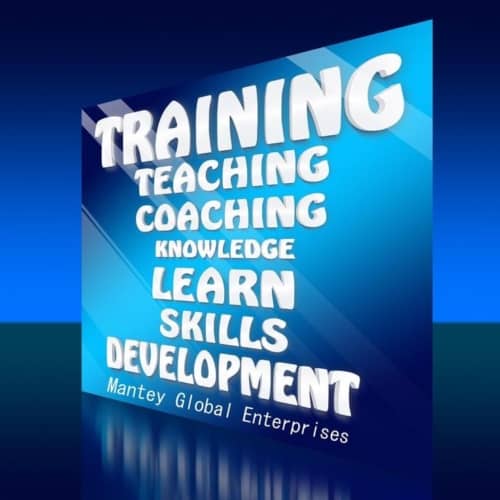 Implementing a coaching program in schools seems to be more prevalent in recent years. However, whether it is part-time or full-time, instituting a coaching program often creates a fundamental change in the way instruction is implemented and viewed throughout the school. In fact, some teachers welcome the opportunity for guidance, but others are much more reluctant to engaging in regular reflection and receiving systematic feedback.
Implementing a coaching program in schools seems to be more prevalent in recent years. However, whether it is part-time or full-time, instituting a coaching program often creates a fundamental change in the way instruction is implemented and viewed throughout the school. In fact, some teachers welcome the opportunity for guidance, but others are much more reluctant to engaging in regular reflection and receiving systematic feedback.
This change with an instructional coach guiding instructional approaches can create individual anxiety and fear, as many teachers have not experienced adequate instructional support during their career. Teacher fear of judgement, ridicule, loss of control, additional meetings, and time requirements for individual discussions are real perceptions from the teacher perspective and must be considered when building a coaching climate.
To overcome teacher reluctance, the administrator, coach and core teachers must work together to embrace change and mistakes must be viewed as learning opportunities rather than pointing the finger at individuals and placing judgment on individual instructional approaches. Also, since using data is foundational to changing practice and guiding everyone to identify needed areas for improvement, it is a way to build a sense of collaborative partnership and eliminate teachers’ feelings of isolation and anxieties related to individual approaches.
Through creating a receptive culture for change using a coach to assist with instruction, collective capacity and individual growth within the instructional staff continues to grow and expand. Thus, ultimately improving total student outcomes.
Coaching Cycle
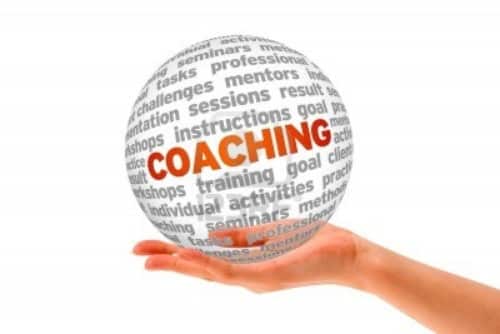 The purpose of implementing an instructional coaching program is to guide teachers to reach full potential. To reach individual potential, the coaching cycle begins with establishing goals aligned with personal needs, the needs of students, and vision of the school. Through this process, individual and small groups of teachers examine student data and dialogue with the coach, colleagues, and others to develop productive learning experiences. Next, teachers reflect on meeting personal goals and the action taken to modify instructional practice to achieve individual targets.
The purpose of implementing an instructional coaching program is to guide teachers to reach full potential. To reach individual potential, the coaching cycle begins with establishing goals aligned with personal needs, the needs of students, and vision of the school. Through this process, individual and small groups of teachers examine student data and dialogue with the coach, colleagues, and others to develop productive learning experiences. Next, teachers reflect on meeting personal goals and the action taken to modify instructional practice to achieve individual targets.
Last, the instructional coach monitors the progress of the teacher by observations, providing feedback and dialoguing about successful strategies or ways to adjust instructional practices. The cycle enables teachers, with support from the coach and colleagues, to engage in the overall organization of the school, reflecting on personal achievements while creating ownership in the organization’s instructional direction. In short, the coaching cycle consists of individuals and small groups planning, implementing, and reflecting on individual and collective goals, while creating a culture for changing practice.
Mindset Matters
 Because teachers possess different skill sets, experiences and knowledge, a one-size-fits-all approach to coaching will not be successful. This leads to a fixed-mindset and can create frustration, which undermines the coaching process. As teachers undertake learning and implementing new strategies, reducing feelings of risk and failure facilitate positive perceptions and a growth mindset.
Because teachers possess different skill sets, experiences and knowledge, a one-size-fits-all approach to coaching will not be successful. This leads to a fixed-mindset and can create frustration, which undermines the coaching process. As teachers undertake learning and implementing new strategies, reducing feelings of risk and failure facilitate positive perceptions and a growth mindset.
Perceptions and mindset are important factors in determining how people approach change. Therefore, it is necessary to consider the way an instructional coach is introduced to teachers. Often, coaching is perceived as a means of last resort for low performing teachers. This stigma undermines the coaching role and inhibits relational trust.
To facilitate positive relationships, it is important for the coach to celebrate successive attempts at changes in instructional practice. By continually tying improved instructional practices to student performance, teachers feel ownership in the process and are more likely to create student-centered goals that relate to their particular teaching context.
Dismantling the Silos
 Lack of voice and ownership in their professional learning practice often leaves teachers feeling isolated and alone. Also, ongoing focus on test scores leave teachers feeling locked into a slot on a data sheet resulting in teachers believing they alone, are responsible for student success. Further, teachers are left to their own devices for implementing new district initiatives, resulting in resentment or a lack of fidelity in implementation.
Lack of voice and ownership in their professional learning practice often leaves teachers feeling isolated and alone. Also, ongoing focus on test scores leave teachers feeling locked into a slot on a data sheet resulting in teachers believing they alone, are responsible for student success. Further, teachers are left to their own devices for implementing new district initiatives, resulting in resentment or a lack of fidelity in implementation.
Effective coaching can bridge the gap and dismantle the silos of isolation. By working with grade level teams as well as individual teachers, coaching can bring new strategies to light, and break them down into manageable, observable techniques. Dismantling the silos of private practice in education encourages collaboration with instructional coaches and peers, and provides positive pathways to meeting student needs.
Author
Dr. Kristi Meeuwse is a veteran kindergarten teacher in Charleston, SC as well as an adjunct professor for Lamar University in their Digital Leading and Learning Master’s Degree program. As an Apple Distinguished Educator, Kristi travels extensively sharing her innovative early literacy practices incorporating iPads into instruction. Kristi is the author of the popular blog iTeach With iPads, which is a chronological account of student voice and choice in demonstrating learning. She also authors leveled readers for her students to enhance literacy learning. Research interests include early literacy, technology integration, and professional development.
Dr. Diane Mason is an Associate Professor in the Center for Doctoral Studies in Educational Leadership at Lamar University in Beaumont, TX and is the College of Education Director of Graduate Studies and Research. During her tenure at Lamar University, Dr. Mason has taught numerous online courses in Educational Leadership and Educational Technology Leadership. In her current role in the online doctoral program, Dr. Mason works with an online team to lead a unique cohort of global distinguished educators. Her prior K-12 experience includes serving as a technology training center coordinator, teaching K-8 regular and special education, and leading as a middle school assistant principal and elementary principal.
During Dr. Mason’s tenure as a K-8 teacher, the National Foundation for the Improvement of Education (NFIE) recognized her as a Christa McAuliffe Fellow for innovative online and technology integration practices. Also, she is the past president of the ISTE state affiliate, Louisiana Computer Using Educators, peer reviews journal articles for the National Council of Professors of Educational Administration, and is a member of the Lamar University Institutional Review Board. Research interests include online learning, technology integration, professional development, school improvement, and leadership.
Further Reading
- The 74 – When Teachers Act as Coaches, Everyone Comes Out a Winner
- Tampa Bay Times – Pinellas teachers get schooled over summer break
- edCircuit – Nurturing Communication
